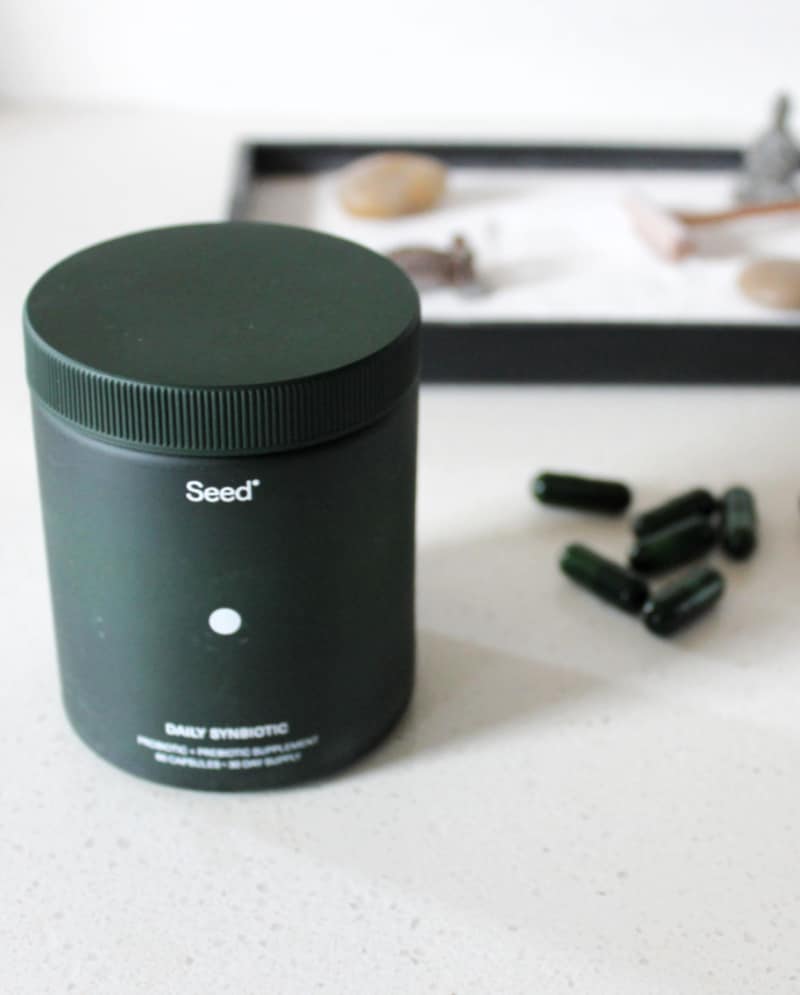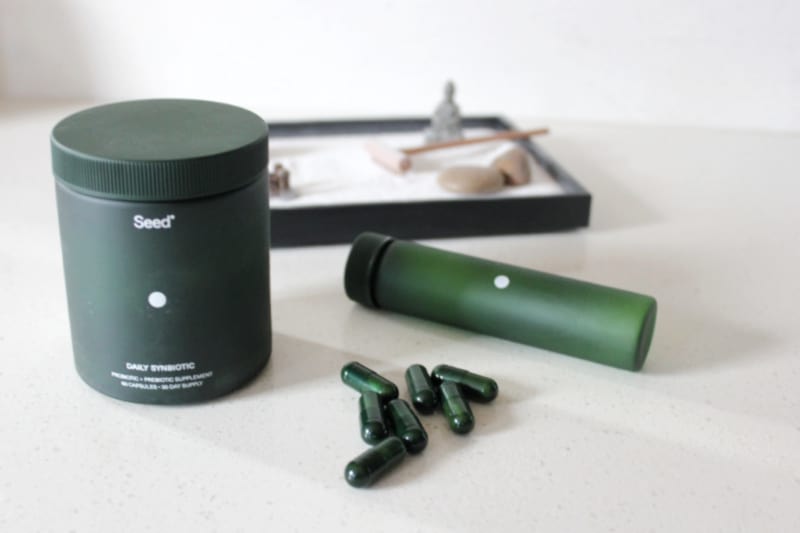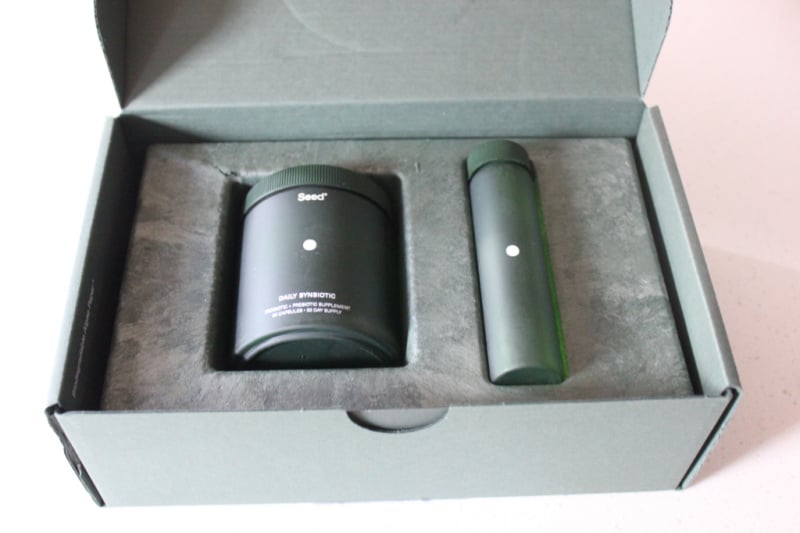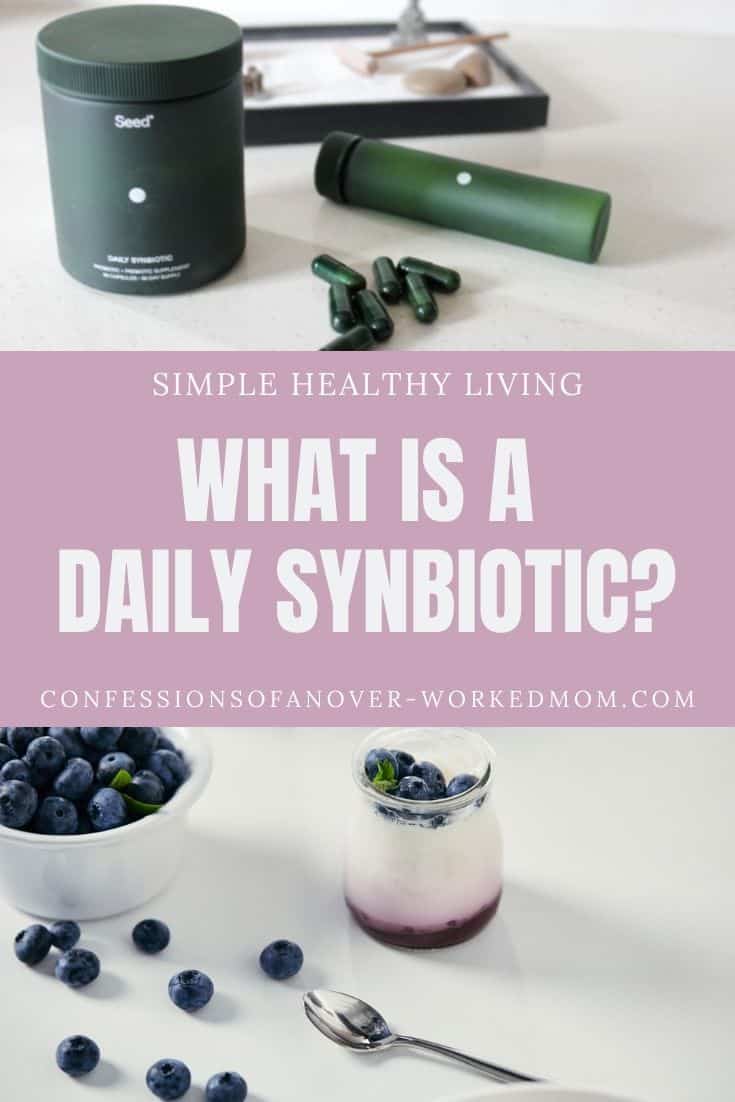Last Updated on July 20, 2023 by Ellen Christian
Are you wondering what a daily synbiotic is? Check out this simple explanation and learn why you should take one every day.
Posts may be sponsored. This post contains affiliate links, which means I will make a commission at no extra cost to you should you click through and make a purchase. As an Amazon Associate I earn from qualifying purchases.

Daily Synbiotic
When it comes to your health, there are lots of things you should remember. But some, like taking a daily probiotic can really make a difference.
So, what exactly is a synbiotic? I’m sure you’ve heard of probiotics before. And, you might even be familiar with the word prebiotic. But, this term might be something you aren’t sure about yet. So, let’s start at the beginning.
Probiotic
Probiotics are live microorganisms that when administered in adequate amounts, can provide health benefits. They are often found in supplement form.
Prebiotic
Prebiotics are compounds in the food you eat that help to feed your microbes and/or compounds that microbes can transform into important metabolites (or compounds) for the body
Synbiotic
To put it in simple terms, a synbiotic is a combination of one or more probiotics and one or more prebiotics in one unit or capsule. Find out more here.

What are the best probiotics?
Seed’s Daily Synbiotic is formulated with strains that support systemic benefits beyond your digestive system. It is a 24-strain broad-spectrum probiotic and prebiotic that includes strains that have been studied to support gut health, digestive health, dermatological health, and more. Learn more.
Unlike traditional probiotics, it has both the probiotic and the prebiotic in one supplement. And, it has a 2-in-1 ViaCap delivery system which protects the probiotics through your digestive system, to ensure the probiotics survive through the end of the small intestine, for delivery to the colon (where their work begins).

When should I take the Daily Synbiotic?
In the past, it was extremely important to take your probiotics with food.
While every person’s system is different, I’ve had no problems at all taking this Daily Synbiotic first thing in the morning on an empty stomach (as to limit the exposure to stomach acids and bile salts).
I love that the special ViaCap delivery system helps make this more gentle on my system. They recommend:
- Day 1-3 – Take 1 capsule daily.
- Day 4 – When you’re ready, increase to the full dose of 2 capsules at once, daily.

Isn’t this the same as eating yogurt or drinking Kombucha?
No, it’s not. It is true that some brands of yogurt have bacteria in them. But, only certain types of bacteria can survive in yogurt.
And, not all yogurts actually contain bacteria. A probiotic supplement like this Daily Synbiotic has far more strains of probiotics in them.
Kombucha is a fermented, slightly alcoholic beverage. It is made with a scoby which is a culture of bacteria and yeast.
It’s true that yogurt, kefir, kimchi, kombucha, sauerkraut, etc, are filled with bacteria from the fermentation process.
However, that’s where the definition of probiotic breaks down. Authored in 2002 by a United Nations – World Health Organization Expert Panel, ‘probiotics’ are ‘live microorganisms that, when administered in adequate amounts, confer a health benefit on the host’.
Isn’t it all the same?
Just because something contains live microorganisms doesn’t mean it satisfies the definition of a probiotic. In order to have a probiotic effect, you must consume the correct strains in adequate quantity, and they must survive the many stages of digestion (think stomach acid and bile) to make it into the colon—where their work begins.
Additionally, many probiotic strains that are naturally occurring in humans are simply not useful for fermentation and thus are not found in food and beverages.
That said, many fermented foods and beverages are extremely nutritious, not to mention very tasty, additions to your daily diet. The distinction is that they are not necessarily reliable sources of beneficial, effective probiotic bacteria.
Another one of the dangers of getting all of your probiotics from things like yogurt and kombucha is the higher sugar content.

Sugar helps to feed the type of bacteria you don’t want in your system. So, you should try to limit it as much as possible.
I love making homemade yogurt, but I still take a daily synbiotic with it.
Do I need to refrigerate this?
No. The same outer ViaCap delivery system that protects the supplement once you take it helps to protect it against oxygen, moisture, and heat. And, the special process used freeze-dries the bacteria where they stay inert until they come in contact with water.
There is no need to keep this in the refrigerator. That means it is the perfect option for traveling or anyone that is on the go.

My thoughts on the Daily Synbiotic
I’ve been taking Seed probiotics for several weeks now. And, wanted to share my thoughts with you on Seed’s Daily Synbiotic. This information isn’t intended to treat, diagnose, prevent, or cure any disease.
I love that I’m able to take this first thing in the morning on an empty stomach without a problem. And, after a few weeks, my digestion feels great.
I also appreciate that you get Seed’s Daily Synbiotic on an automatic delivery schedule. And, it comes with a sustainable refill system
You just keep your jar and the refill arrives every month. That means less packaging in the landfill.
Plus, the welcome kit is packaged in biodegradable PaperFoam that is fully recyclable and home compostable.
I would definitely recommend that you try this yourself and see how it works for you. Find out more here.

Ellen is a busy mom of a 24-year-old son and 29-year-old daughter. She owns six blogs and is addicted to social media. She believes that it doesn’t have to be difficult to lead a healthy life. She shares simple healthy living tips to show busy women how to lead fulfilling lives. If you’d like to work together, email info@confessionsofanover-workedmom.com to chat.
